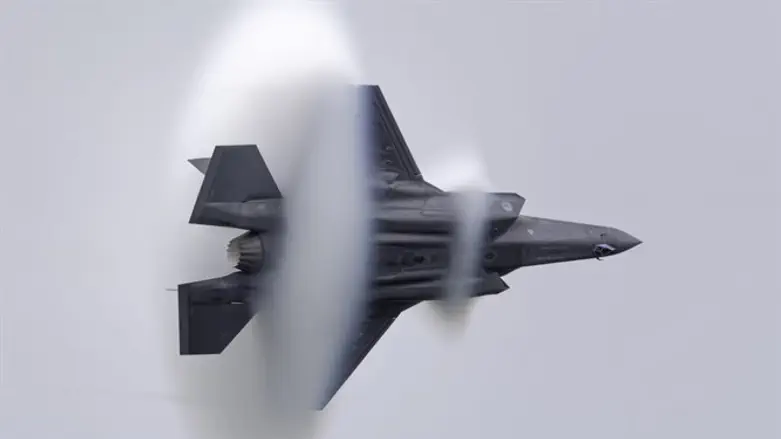
The Israeli Air Force decided to ground its fleet of F-35 fighter jets after the plane's first ever crash last month in North Carolina.
During the crash, the Marine Corps F-35B was completely destroyed. A post-crash investigation found that a faulty fuel pipe in the engine caused the crash, leading the US to ground all of it's F-35 planes until they can be given the once-over.
Following the crash, Israeli Air Force Commander Amikam Norkin decided to take extra precautions and test all of Israel's F-35 'Adir' fighter jets as well, despite the fact that Israel uses a different model than the US.
Testing is expected to take several days, after which the planes will return to full operation. The IDF stressed that the F-35 is currently designated as operational and are ready to operate if the need arises.
The F-35, which resulted from the Joint Strike Fighter (JSF) program of the 1980s and 1990s, is the newest American-produced fighter aircraft, and is set to replace the F-16 Fighting Falcon.
While the F-35, when operational, will be the most advanced aircraft in Israel’s arsenal, the plane has been subjected to heavy criticism for massive cost overruns and ongoing questions over its dogfighting capabilities.
With a per-unit cost of roughly $100 million and a total program cost of well over $1.5 trillion, the F-35 has become one of the most expensive weapons development programs in history.
Israel was the first country outside the United States to acquire the F-35. Only a limited number of American allies have been allowed to purchase the jet, which Washington has asserted will continue to maintain Israel’s qualitative military edge.
Israel currently has about eight of the planes. A total of 50 have been ordered by Israel, which should have them all by 2024. They are to be fitted with advanced Israeli weapons systems.